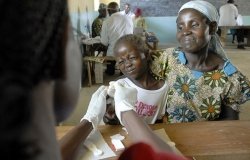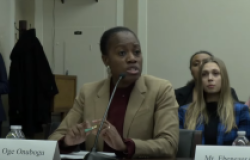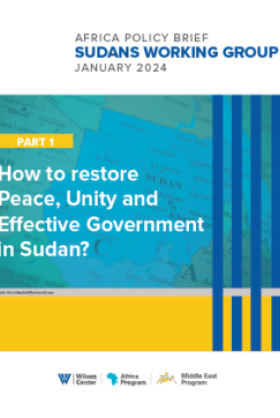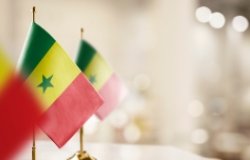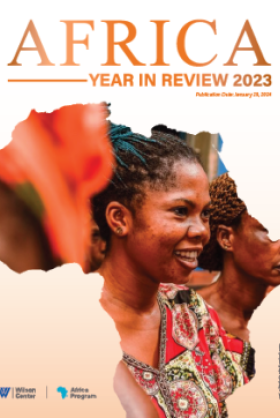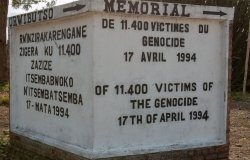A Briefing on the Congo by SRSG Alan Doss
On Wednesday, April 16, 2008 the Wilson Center Africa Program hosted the Special Representative of the United Nations Secretary General (SRSG) in the Democratic Republic of the Congo (DRC), Alan Doss, for a briefing on current events in the Congo. Howard Wolpe, director of the Africa Program at the Wilson Center, served as moderator.
Overview
With
Alan Doss, Special Representative of the United Nations Secretary General in the Democratic Republic of the Congo
Howard Wolpe (moderator), Africa Program at the Wilson Center
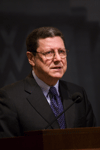 On Wednesday, April 16, 2008 the Wilson Center Africa Program hosted the Special Representative of the United Nations Secretary General (SRSG) in the Democratic Republic of the Congo (DRC), Alan Doss, for a briefing on current events in the Congo. Howard Wolpe, director of the Africa Program at the Wilson Center, served as moderator.
On Wednesday, April 16, 2008 the Wilson Center Africa Program hosted the Special Representative of the United Nations Secretary General (SRSG) in the Democratic Republic of the Congo (DRC), Alan Doss, for a briefing on current events in the Congo. Howard Wolpe, director of the Africa Program at the Wilson Center, served as moderator.
Before beginning his presentation, Doss noted that many of the issues facing the DRC today are similar to those in Zaire (the former name of the DRC) twenty years ago. While there has been some progress over the past four years - most of the country is at relative peace, the economy is slowly reviving, and a few key sectors such as mining are growing - the problems are far from being solved. He noted that the current priorities for DRC set forth by the UN Security Council are as follows:
• Stability in the East
• Protection of civilians
• Preparations for local elections
• Security Sector Reforms
Doss' discussion focused on the progress to date of the recent Nairobi Communiqué and Goma Acts of Engagement. The former is the joint communiqué signed by the Governments of the DRC and the Republic of Rwanda for a common approach to end the threat posed to peace and stability in both countries and the Great Lakes Region. It was signed in Nairobi on November 9, 2007. The latter agreement is the result of the Goma conference on peace, security and development for the Kivu provinces held this past January. The Acts of Engagement which provided for demobilization of militias and the acceleration of the peace process were signed on January 23, 2008 by the DRC government and armed groups in the area.
Many challenges arise from attempts to establish the rule of law in general and specifically in implementing the Nairobi Communiqué and Goma Acts. The progress of these last two has not been as rapid as hoped. Doss first made a few recommendations concerning the Nairobi Communiqué. He concentrated on the political and diplomatic tracks while maintaining that military measures should be held in reserve as a last resort. He suggested that there is a need for both increased understanding from Rwanda of the Communiqué's seriousness and recognition on the part of the Congolese that the Forces Démocratiques de Libération du Rwanda (FDLR) is also their concern. Doss recommended that Rwanda increase flexibility to facilitate the return of combatants. He also suggested that the European Commission should break the links of any FDLR leaders in Europe with Rwanda and the DRC. Finally, voluntary demobilization, disengagement and reintegration (DDR) should be assisted by the international community.
Doss remarked that the implementation of the Goma Acts has seen slightly more progress with the set-up of subcommittees, the launch of the Amani Forum 2008-2012 Strategic Plan and the establishment and meeting of the Peace and Security Commission. While the Goma Acts are not a comprehensive agreement, it is the best one could hope for in the current climate. Doss pointed out that the "trinity" of the EU, US, and UN and their special envoys are productively applying pressure in the same direction. However, issues remain as to negotiating full disengagement. National Congress for the Defense of the People (CNDP) concerns continue over what will happen to the forces and who will protect the population. Questions also remain unanswered about returns with regards to security guarantees for internally displaced persons (IDPs) and refugees who may be identified as Congolese. This last definition may be the most important to negotiate according to Doss.
Doss continued with the statement that peace agreements do not make peace. They can send us down the road, "but it will be a slow, bumpy road filled with setbacks." Doss highlighted the need to maintain constant support and keep the parties talking and out of isolation. He recommends the quick dispersal of small projects that create jobs, especially infrastructure one like road repair and construction. Furthermore, the business community should meet across borders. The control or domination of armed groups must end, which can be a way to deal with the matter of sexual violence. Doss also reiterated that justice must be present on the ground and to assure that, the international community must work with the national security forces, even having monthly reports of offenses sent to the Ministries of Security and Defense. Police must maintain respect for the highest level of conduct in all matters within their own forces.
Finally, Doss concluded that the answers lie with the Congolese. He affirmed that there is hope for peace in the long term when the DRC can break the cycle of violence, see recovery, and implement transparency and good governance.
Drafted by Alicia Ranck, Intern and Roseline Fodouop Tekeu, Program Assistant, Africa Program.
Documents & Downloads
Hosted By

Africa Program
The Africa Program works to address the most critical issues facing Africa and US-Africa relations, build mutually beneficial US-Africa relations, and enhance knowledge and understanding about Africa in the United States. The Program achieves its mission through in-depth research and analyses, public discussion, working groups, and briefings that bring together policymakers, practitioners, and subject matter experts to analyze and offer practical options for tackling key challenges in Africa and in US-Africa relations. Read more
Thank you for your interest in this event. Please send any feedback or questions to our Events staff.




